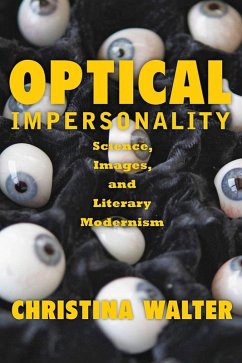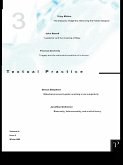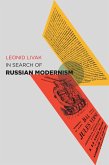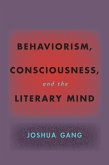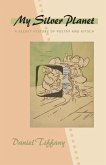Examines modernist writers' efforts to map the social implications of an evolving science of vision and visual culture.Western accounts of human vision before the nineteenth century tended to separate the bodily eye from the rational mind. This model gave way in the mid-nineteenth century to one in which the thinking subject, perceiving body, perceptual object, and material world could not be so easily separated. Christina Walter explores how this new physiology of vision provoked writers to reconceive the relations among image, text, sight, and subjectivity.Walter focuses in particular on the ways in which modernist writers such as H.D., Mina Loy, D. H. Lawrence, and T. S. Eliot adapted modern optics and visual culture to develop an alternative to the self or person as a model of the human subject. Critics have long seen modernists as being concerned with an "e;impersonal"e; form of writing that rejects the earlier Romantic notion that literature was a direct expression of its author's personality. Walter argues that scholars have misunderstood aesthetic impersonality as an evacuation of the person when it is instead an interrogation of what exactly goes into a personality. She shows that modernist impersonality embraced the embodied and incoherent notion of the human subject that resulted from contemporary physiological science and traces the legacy of that impersonality in current affect theory.Optical Impersonality will appeal to scholars and advanced students of modernist literature and visual culture and to those interested in the intersections of art, literature, science, and technology.
Dieser Download kann aus rechtlichen Gründen nur mit Rechnungsadresse in A, B, BG, CY, CZ, D, DK, EW, E, FIN, F, GR, HR, H, IRL, I, LT, L, LR, M, NL, PL, P, R, S, SLO, SK ausgeliefert werden.

